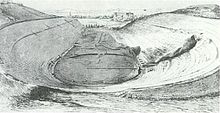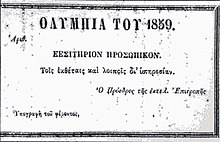
The modern Olympic Games are the world's leading international sporting events. They feature summer and winter sports competitions in which thousands of athletes from around the world participate in a variety of competitions. The Olympic Games are considered the world's foremost sports competition, with more than 200 teams, representing sovereign states and territories, participating. By default, the Games generally substitute for any world championships during the year in which they take place. The Olympics are staged every four years. Since 1994, they have alternated between the Summer and Winter Olympics every two years during the four-year Olympiad.
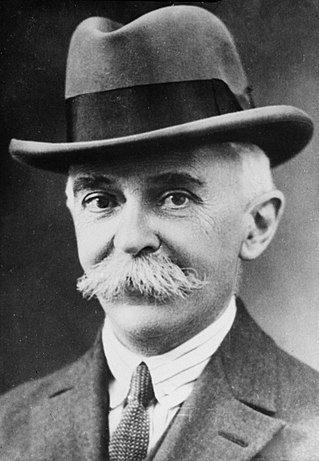
Charles Pierre de Frédy, Baron de Coubertin, also known as Pierre de Coubertin and Baron de Coubertin, was a French educator and historian, co-founder of the International Olympic Committee (IOC), and its second president. He is known as the father of the modern Olympic Games. He was particularly active in promoting the introduction of sport in French schools.

The 1896 Summer Olympics, officially known as the Games of the I Olympiad and commonly known as Athens 1896, were the first international Olympic Games held in modern history. Organised by the International Olympic Committee (IOC), which had been created by French aristocrat Pierre de Coubertin, the event was held in Athens, Greece, from 6 to 15 April 1896.

The 2004 Summer Olympics, officially the Games of the XXVIII Olympiad, and officially branded as Athens 2004, were an international multi-sport event held from 13 to 29 August 2004 in Athens, Greece.
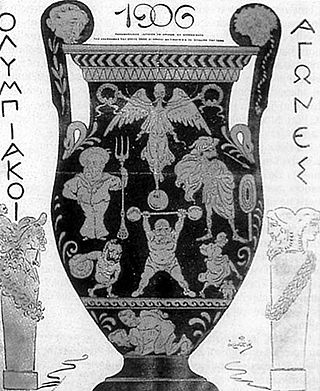
The 1906 Intercalated Games or 1906 Olympic Games, held from 22 April 1906 to 2 May 1906, was an international multi-sport event that was celebrated in Athens, Greece. They were at the time considered to be Olympic Games and were referred to as the "Second International Olympic Games in Athens" by the International Olympic Committee (IOC). However, the medals that were distributed to the participants during these games were later not officially recognised by the IOC and are not displayed with the collection of Olympic medals at the Olympic Museum in Lausanne, Switzerland.

The Panathenaic Games were held every four years in Athens in Ancient Greece from 566 BC to the 3rd century AD. These Games incorporated religious festival, ceremony, athletic competitions, and cultural events hosted within a stadium.

The Panathenaea was a multi-day ancient Greek festival held annually in Athens that would always conclude on 28 Hekatombaion, the first month of the Attic calendar. The main purpose of the festival was for Athenians and non-Athenians to celebrate the goddess Athena. Every four years, the festival was celebrated in a larger manner over a longer time period with increased festivities and was known as the Great (or Greater) Panathenaea. In the years that the festival occurred that were not considered the Great Panathenaea, the festival was known as the Lesser Panathenaea. The festival consisted of various competitions and ceremonies, culminating with a religious procession that ended in the Acropolis of Athens.

Olympia, officially Archaia Olympia, is a small town in Elis on the Peloponnese peninsula in Greece, famous for the nearby archaeological site of the same name. The site was a major Panhellenic religious sanctuary of ancient Greece, where the ancient Olympic Games were held every four years throughout Classical antiquity, from the 8th century BC to the 4th century AD. They were restored on a global basis in 1894 in honor of the ideal of peaceful international contention for excellence.

The Panathenaic Stadium or Kallimarmaro is a multi-purpose stadium in Athens, Greece. One of the main historic attractions of Athens, it is the only stadium in the world built entirely of marble.

The Wenlock Olympian Games, dating from 1850, are a forerunner of the modern Olympic Games. They are organised by the Wenlock Olympian Society (WOS), and are held each year at venues across Shropshire, England, centred on the market town of Much Wenlock. One of the two mascots for the 2012 Summer Olympics was named Wenlock in honour of the Wenlock Olympian Games.

The Zappeion is a large, palatial building next to the National Gardens of Athens in the heart of Athens, Greece. It is generally used for meetings and ceremonies, both official and private and is one of the city's most renowned modern landmarks.
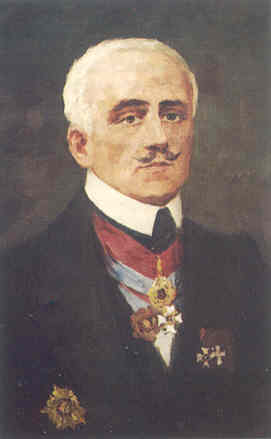
Evangelos or Evangelis Zappas was a Greek patriot, philanthropist and businessman who spent most of his life in Romania. He is recognized today as one of the founders of the modern Olympic Games, which were held in 1859, 1870, 1875, and 1888 and preceded the Olympic Games that came under the auspices of the International Olympic Committee. These Games, known at the time simply as Olympics, came before the founding of the International Olympic Committee itself. The legacy of Zappas, as well as the legacy of his cousin Konstantinos, was also used to fund the Olympic Games of 1896.

The National Garden, called the Royal Garden until 1974, is a public park of 15.5 hectares in the center of the Greek capital, Athens. It is located between the districts of Kolonaki and Pangrati, directly behind the Greek Parliament building and continues to the South to the area where the Zappeion is located, across from the Panathenaiko or Kalimarmaro Olympic Stadium of the 1896 Olympic Games. The Garden also encloses some ancient ruins, column drums and Corinthian capitals of columns, mosaics, and other features. On the Southeast side are the busts of Ioannis Kapodistrias, the first governor of Greece, and of the Philhellene Jean-Gabriel Eynard. On the South side are the busts of the celebrated Greek poets Dionysios Solomos, author of the Greek National Hymn, and Aristotelis Valaoritis.

Alexandros Soutsos (1803–1863) was a Greek poet from a prominent Phanariote family. He founded the Greek Romantic school of poetry. Soutsos was born in Istanbul in 1803 from Chian parentage. At the time of the Greek Revolution, he was a young, liberal partisan. He wrote poems to encourage the insurgents. Soutsos studied in Chios, where he spent his formative years. Later he moved to Paris, where he was influenced by the liberal philosophies of the French intellectuals. His major work of prose was the Exóristos. His works were instrumental in developing liberal thought in the young Greek monarchy. He was an admirer of Lord Byron. Whose inspiration prompted Soutsos to try to emulate him. The resultant work, was his longest poem Periplanómenos, in spite of some positive reviews, it never achieved international success. In spite of his lack of artistic respect, he was admired by many of his contemporaries the Greek people admired him for his dedication to freedom, and for his liberal philosophies. He died in Athens in 1863, and his works were published in 1916.

William Penny Brookes was an English surgeon, magistrate, botanist, and educationalist especially known for founding the Wenlock Olympian Games, inspiring the modern Olympic Games, and for his promotion of physical education and personal betterment.

Diagoras of Rhodes was an Ancient Greek boxer from the 5th century BC, who was celebrated for his own victories, as well as the victories of his sons and grandsons. He was a member of the Eratidea family at Ialysos in Rhodes.
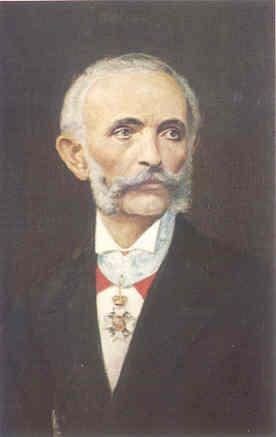
Konstantinos Zappas was a Greek entrepreneur and national benefactor who together with his cousin, Evangelos Zappas, played an essential role in the revival of the Olympic Games.

Panagiotis Soutsos was a Greek poet, novelist and journalist born in Constantinople. He was the brother of the satirist Alexandros Soutsos and cousin of writer and diplomat Alexandros Rizos Rangavis. Soutsos is known to be one of the pioneers of romanticism in Greek poetry and prose, as well as a visionary behind the new Olympic Games who inspired Evangelis Zappas to sponsor their revival.
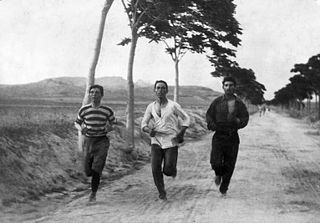
The marathon at the Summer Olympics is the only road running event held at the multi-sport event. The men's marathon has been present on the Olympic athletics programme since the first modern Olympics in 1896. Nearly ninety years later, the women's event was added to the programme at the 1984 Olympics in Los Angeles.

Athletics were an important part of the cultural life of Ancient Greeks. Depictions of boxing and bull-leaping can be found back to the Bronze Age. Buildings were created for the sole use of athletics including stadia, palaestrae, and gymnasiums. Starting in the Archaic period, Panhellenic Games, including the Olympic Games, begin taking place each year. These games gave people from all over Greece the chance to gain fame for their athletic prowess. Athletics in Greece became one of the most commonly depicted scenes of everyday life in their art.
